GLP-1 Weight Loss Clinical Trial in Texas
GLP-1 Weight Loss Clinical Trial in Texas
Managing weight is about more than just willpower for many adults. Factors like genetics, hormones, medications, sleep, and stress all impact how a person's body stores and uses fat. Because of this, obesity is seen as a chronic medical condition that often needs medical help and behavioral support, not just a new diet.
This blog will cover several key points. First, we’ll discuss why current obesity research focuses on hormones like GLP-1 and GIP. Then, we’ll provide an overview of the ACRC Trials Weight Loss Study in Texas. We’ll also explain the general eligibility requirements for participation and what taking part in the study involves. Finally, we’ll go over the benefits and things to consider before joining a clinical trial.
Why Obesity Research Focuses on GLP-1 and GIP
 Recent studies on obesity focus on medications that work with the body's natural hormones.GLP-1 and GIP are two hormones from the gut that help control appetite, blood sugar, and metabolism.
Recent studies on obesity focus on medications that work with the body's natural hormones.GLP-1 and GIP are two hormones from the gut that help control appetite, blood sugar, and metabolism.
GLP-1 treatments have shown promising results in helping people with obesity and type 2 diabetes slim down and improve their metabolic health. New treatments are being developed that combine GLP-1 and GIP in one medication. Early research suggests that this combination may lead to even better weight loss and health benefits.
Clinical trials, like the ACRC Trials Weight Loss Study, are being conducted to carefully test these new approaches and monitor their safety.
Overview of the ACRC Trials Weight Loss Study
ACRC Trials is conducting a clinical study in Texas on a GLP-1/GIP medication given by injection just under the skin. This medication is still being tested and is not yet available for regular use.
Key points about the study include:
- It focuses on a GLP-1/GIP injection for adults who are overweight or obese.
- Participants receive no-cost medical care and monitoring related to the study.
- Eligible participants may receive up to $5,300 for their time and travel if they complete all required visits.
- The main goal of the study is to collect information about the investigational medication’s safety, how well it is tolerated, and its effects on weight and health.
Who May Qualify for the ACRC Weight Loss Study?
 Only the research team can determine eligibility for the study, but ACRC has published general guidelines that provide an overview of who the study is intended for. In broad terms, you may be considered eligible if you:
Only the research team can determine eligibility for the study, but ACRC has published general guidelines that provide an overview of who the study is intended for. In broad terms, you may be considered eligible if you:
- Are an adult (18 years or older)
- You are overweight or obese, meaning your BMI is 27 kg/m² or higher.
- You have been diagnosed with or currently have health problems caused by your weight, like high blood pressure, high cholesterol, prediabetes, or type 2 diabetes (specific rules might differ).
- Are able to attend scheduled study visits and follow the study protocol
- Are comfortable with injectable treatments and regular health assessments
During a screening visit, the study team will review your medical history, current medications, and lab results to confirm whether you meet all of the inclusion and exclusion criteria.
What Participation Typically Involves
Study details can vary, but a typical path for a participant in a weight loss trial may include the following steps:
- Initial Interest Form: Participants express their interest by completing a short form on the ACRC Trials website or by contacting the site via phone. A coordinator then reviews basic eligibility questions.
- Screening Visit: Potential participants come in for a complimentary evaluation. This might include health tests, blood work, and a review of your past medical information and medicines.
- Enrollment and Randomization: If all eligibility criteria are met and the individual decides to join the trial, they are enrolled and may be randomly given either the investigational medication or a comparison treatment, depending on the study design.
- Ongoing Study Visits: Throughout the trial, participants return for regular visits. These visits might involve injections, lab tests, surveys, and talking with the study team about any side effects or health changes.
- Final Checks and Follow-up: When the study is finished, participants have their last health checks. Some studies also include a follow-up period to assess how they are doing after treatment ends.
Throughout the process, participants can ask questions and are free to withdraw from the study at any time.
Benefits and Considerations of Joining a Weight Loss Clinical Trial
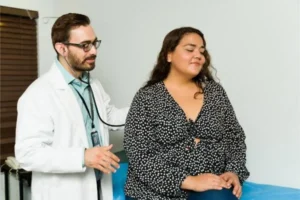 Potential Benefits:
Potential Benefits:
Individuals who qualify for and enroll in a study like this may experience several potential advantages:
- Access to an investigational GLP-1/GIP treatment before it becomes widely available.
- No-cost study-related care, including lab work and regular monitoring.
- Structured support for weight management, health measurements, and symptom tracking.
- Compensation for time and travel, which can help offset the effort involved in attending visits.
- The opportunity to contribute to obesity research that could lead to improved treatments in the future.
Things to Consider:
It's important to remember a few things:
- Results can vary; weight loss is not guaranteed.
- Participants may experience side effects, which can range from mild (such as gastrointestinal symptoms) to more serious effects. Documenting these effects is part of the trial's purpose.
- The study may require multiple visits and procedures.
- Since this investigational medicine is new, we might not know much about its long-term effects.
Ultimately, the decision to participate often depends on individual health, past weight loss attempts, comfort with research, and personal priorities.
Where ACRC Trials Conducts the Weight Loss Study
ACRC Trials operates several clinical research sites across Texas. Their network includes locations in:
- Plano (headquarters at West Plano Medical Village)
- Dallas and the greater DFW area
- Frisco
- Carrollton
- Grapevine
- Austin
- Houston
This extensive network enables ACRC Trials to conduct multi-site studies, such as the weight loss trial, while ensuring that participant visits are conveniently located near their homes.
How to Learn More or Ask Questions
 If you would like detailed information about the study, such as current inclusion/exclusion criteria, visit schedules, or openings at specific sites, the most accurate source is ACRC Trials. You can visit the Weight Loss Study page on the ACRC Trials website to complete an information or pre-screening form. Alternatively, you can call the ACRC Trials headquarters in Plano using the phone number listed on the website for the most current contact details. The research team can guide potential participants through the process, answer questions about the risks and benefits, and help determine whether this study or another trial in their network might be a good fit.
If you would like detailed information about the study, such as current inclusion/exclusion criteria, visit schedules, or openings at specific sites, the most accurate source is ACRC Trials. You can visit the Weight Loss Study page on the ACRC Trials website to complete an information or pre-screening form. Alternatively, you can call the ACRC Trials headquarters in Plano using the phone number listed on the website for the most current contact details. The research team can guide potential participants through the process, answer questions about the risks and benefits, and help determine whether this study or another trial in their network might be a good fit.


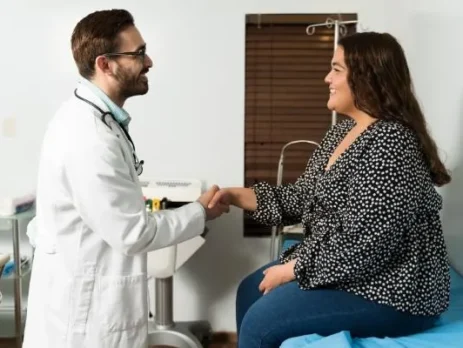

 More than two out of five American adults are obese, a condition that contributes to severe illnesses such as heart disease and diabetes. In Texas, where these health issues are common, there's a growing need for effective treatments.
More than two out of five American adults are obese, a condition that contributes to severe illnesses such as heart disease and diabetes. In Texas, where these health issues are common, there's a growing need for effective treatments. ACRC Clinical Trials has research centers in Dallas, Plano, Frisco, Carrollton, Grapevine, Austin, and Houston, making it easy for individuals in North and Central Texas to participate in their studies. At every site, skilled doctors, research coordinators, and medical staff are dedicated to enhancing participants' health through innovative scientific discoveries.
ACRC Clinical Trials has research centers in Dallas, Plano, Frisco, Carrollton, Grapevine, Austin, and Houston, making it easy for individuals in North and Central Texas to participate in their studies. At every site, skilled doctors, research coordinators, and medical staff are dedicated to enhancing participants' health through innovative scientific discoveries. Two important hormones, GLP-1 and GIP, are central to today's studies on obesity. These hormones, which our bodies naturally produce, play a crucial role in regulating our hunger levels, blood sugar levels, and energy metabolism.
Two important hormones, GLP-1 and GIP, are central to today's studies on obesity. These hormones, which our bodies naturally produce, play a crucial role in regulating our hunger levels, blood sugar levels, and energy metabolism.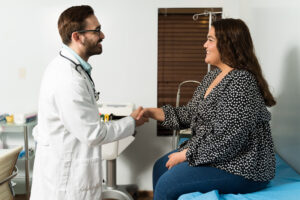 Joining an obesity study is about more than losing weight—it's about being part of something important. Volunteers get study-related medical care and support from professionals in a caring setting. By participating, they help develop treatments that could assist millions of people worldwide.
Joining an obesity study is about more than losing weight—it's about being part of something important. Volunteers get study-related medical care and support from professionals in a caring setting. By participating, they help develop treatments that could assist millions of people worldwide. If you live near Dallas, Plano, Frisco, Carrollton, Grapevine, Austin, or Houston and have difficulty losing weight, you might qualify for ACRC Trials’ study. Participants receive medical supervision, health check-ups, and can earn up to $5,300 for their time and travel.
If you live near Dallas, Plano, Frisco, Carrollton, Grapevine, Austin, or Houston and have difficulty losing weight, you might qualify for ACRC Trials’ study. Participants receive medical supervision, health check-ups, and can earn up to $5,300 for their time and travel.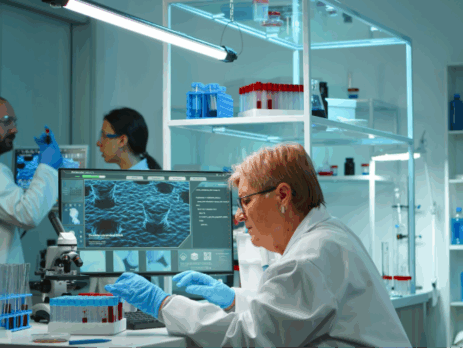
 According to the
According to the  ACRC Trials conducts research across a wide range of therapeutic areas, enabling many individuals to find studies that align with their health needs. Common areas of study include:
ACRC Trials conducts research across a wide range of therapeutic areas, enabling many individuals to find studies that align with their health needs. Common areas of study include: Medical studies are most effective when they include diverse people from all backgrounds. ACRC Trials has clinics in various Texas cities, which helps them recruit volunteers from a wide range of ethnic and cultural groups. This diversity enhances the quality of the data collected, ensuring that future treatments will be safe and effective for everyone.
Medical studies are most effective when they include diverse people from all backgrounds. ACRC Trials has clinics in various Texas cities, which helps them recruit volunteers from a wide range of ethnic and cultural groups. This diversity enhances the quality of the data collected, ensuring that future treatments will be safe and effective for everyone. Clinical trials involve teamwork among doctors, scientists, and participants. For residents of Texas, the availability of trials in Plano, Frisco, Carrollton, Grapevine, Austin, Dallas, and Houston allows you to actively contribute to the future of healthcare within your own community.
Clinical trials involve teamwork among doctors, scientists, and participants. For residents of Texas, the availability of trials in Plano, Frisco, Carrollton, Grapevine, Austin, Dallas, and Houston allows you to actively contribute to the future of healthcare within your own community.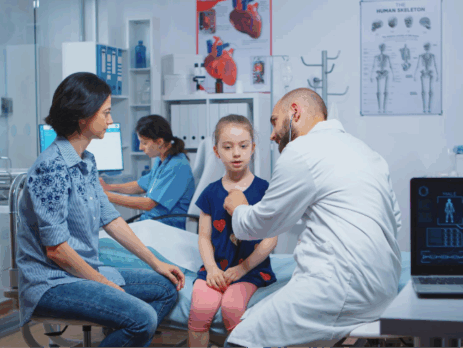



 All current birth control methods, like the pill and the patch, are developed through careful testing in clinical trials. These studies assess new contraceptives in a safe and controlled environment to:
All current birth control methods, like the pill and the patch, are developed through careful testing in clinical trials. These studies assess new contraceptives in a safe and controlled environment to:

 The ACRC Weight Loss Study is focusing on a combination of GLP-1 and GIP-based medications that have shown promise in helping participants lose weight by regulating appetite and improving metabolism. This area of obesity research is gaining significant national attention.
The ACRC Weight Loss Study is focusing on a combination of GLP-1 and GIP-based medications that have shown promise in helping participants lose weight by regulating appetite and improving metabolism. This area of obesity research is gaining significant national attention. You may qualify to join the ACRC weight loss study if you fit these requirements:
You may qualify to join the ACRC weight loss study if you fit these requirements: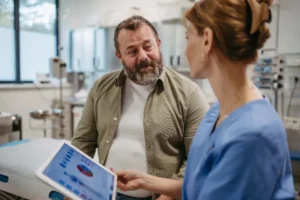 Participating in a clinical trial offers more than just the opportunity to try a new treatment. Here are some benefits of enrolling in the
Participating in a clinical trial offers more than just the opportunity to try a new treatment. Here are some benefits of enrolling in the 
 Alopecia is a general term for hair loss and encompasses several different forms. The most common types include:
Alopecia is a general term for hair loss and encompasses several different forms. The most common types include: Can hair grow back after experiencing alopecia? In many cases, the answer is yes. For example:
Can hair grow back after experiencing alopecia? In many cases, the answer is yes. For example: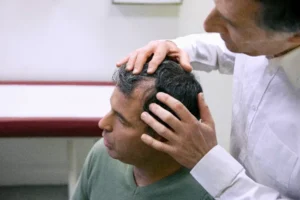 To gain a clearer understanding of the research landscape surrounding alopecia and other forms of hair loss, explore the
To gain a clearer understanding of the research landscape surrounding alopecia and other forms of hair loss, explore the